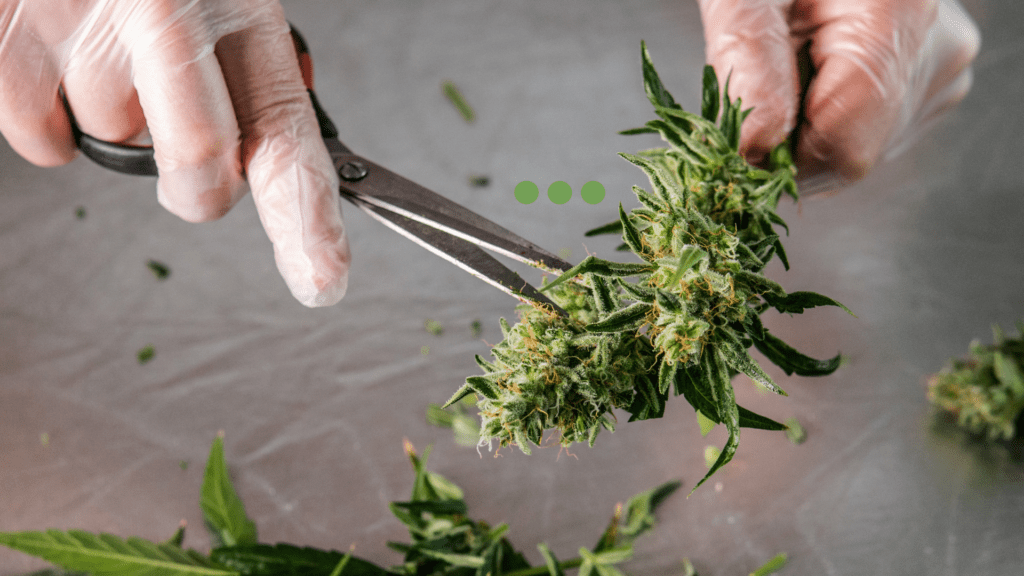
Is Weed Vegan? – Seedsman Blog
On the surface, the question “is weed vegan?” might seem like a relatively straightforward one. Cannabis is a plant, after all, so it must be vegan, right? Not quite. If you ask that question around your stoner group, you’ll probably get varying answers: “Yes”. “No”. “It depends”. The true answer to the question is that it actually depends – but on what?
What is Veganism?
Although difficult to accurately track, recent figures suggest somewhere between 1-3% of the world’s population identify as vegan[i]. Still viewed by some as a mere derivative of vegetarianism, veganism is more than a set of restrictive rules governing dietary intake.
Indeed, like vegetarians, vegans don’t eat meat and have a diet that is definitely plant-based, but there’s decidedly more to it. Vegetarians abstain from eating meat but will typically consume eggs and dairy products. Vegans, however, will not consume anything directly or indirectly obtained from animals and refrain from such products as a matter of principle. In fact, The Vegan Society’s website defines veganism as “…a way of living which seeks to exclude, as far as is possible and practicable, all forms of exploitation of, and cruelty to, animals for food, clothing or any other purpose.”[ii] It’s this distinction that may ultimately define some cannabis as non-vegan. “Any other purpose” covers everything from growing to extraction methods, packaging, and beyond.
As I was writing this, a vegan family member quipped, “If the weed was carried to town on a heavily-laden donkey, a vegan wouldn’t want it”.
Why Cannabis is Not Necessarily Strictly Vegan
Breaking down The Vegan Society’s definition leads us to leads us to look beyond the plant itself and instead look specifically at how the plant is grown in order to classify cannabis as vegan-friendly or not. To do that, we need only look at the grow medium, particularly what’s in it. Do you know how your ganja was grown? Was it fertilised, and if so, with what? For the most part, good ol’ home-grown cannabis cultivation is easier to classify as vegan – but if your bud comes from a dispensary, it’s much harder to guarantee. It might all seem a bit pedantic to non-vegans, but to a lot of vegans, this is the nitty-gritty that matters.
To gain the maximum growth and yields from cannabis plants, cultivators introduce extra nutrients – and in many cases, it’s those nutrients that scupper the chances of classifying cannabis as vegan. There are necessary nutrients like nitrogen, potassium and phosphorous, and you may want to use organic fertilizers. Still, additives labelled as organic are often derived as the result of animal farming. Bone meal, bat guano, fish hydrolysate, blood meal and more are all popular additives deemed organic but most certainly not vegan.
And when you realise that additives like those above are dried, or ground remains of animals or fish (animal byproducts from slaughterhouses), they don’t seem particular organic anymore, either. The everyday use of these fertilisers rules out the chance of a lot of cannabis being classifiable as vegan.
Depending on just how strict a vegan you are, even the packaging on some cannabis can fail the vegan test due to animal products like gelatin in some adhesives and even inks – and it’s highly unlikely your supplier manufacturers their own packaging.
Growing Vegan Marijuana
If you’re a strict vegan and want to grow your own 100% veganic cannabis, it can be done.
You’ll have to eschew any organic fertilisers and either hunt down vegan-friendly versions or make your own. Vegan-friendly cannabis products are available from companies such as master grower and award-winner Kyle Kushman’s Vegamatrix, who make a range of products designed with vegan growers in mind. Like CBD creams, cruelty-free concentrates, gelatin-free THC gummies and multiple veganic growing materials.
The cannabis industry should always be transparent amount the means of production.
But if you want to get hands-on and make your own, you can learn how to make compost tea. Compost tea is organic compost soaked in aerated water and should be used as a supplement to the essential nutrients, rather than a replacement, and will bring numerous benefits to your plants, including additional nutrients and beneficial bacteria that help grow healthy roots. It has the added bonus of assisting in preventing diseases. While the benefits of compost tea are often debated, many report quality results upon introducing it to their plants. Spray on roots or leaves, but don’t put it through drip lines as it will eventually cause clogging.
Does Vegan Weed Taste Different?
Anecdotally, some users report that you can taste the terpenes better in vegan weed and also that the smoke is much smoother – but the founder of Dr Robb Farms, Dr Robert Flannery, has noted that the plant will only absorb mineral nutrients regardless of the fertiliser used, and those fertiliser salts remain in the plant tissue.
While vegan-friendly, cannabinoid-infused edibles are relatively easy to obtain, ultimately, 100% veganic cannabis is pretty hard to come by. If you’re a vegan who smokes cannabis, you’re probably aware of that and have likely made peace with the fact.
If you’re extremely committed to the vegan way of life and have dispensaries in your area, you may be fortunate enough to find some of those rare vegan cannabis strains on the shelf – but if not, why not consider growing your own?
[i] https://www.vegansociety.com/news/media/statistics/worldwide
[ii] https://www.vegansociety.com/go-vegan/definition-veganism
Cultivation information, and media is given for those of our clients who live in countries where cannabis cultivation is decriminalised or legal, or to those that operate within a licensed model. We encourage all readers to be aware of their local laws and to ensure they do not break them.
Source link












